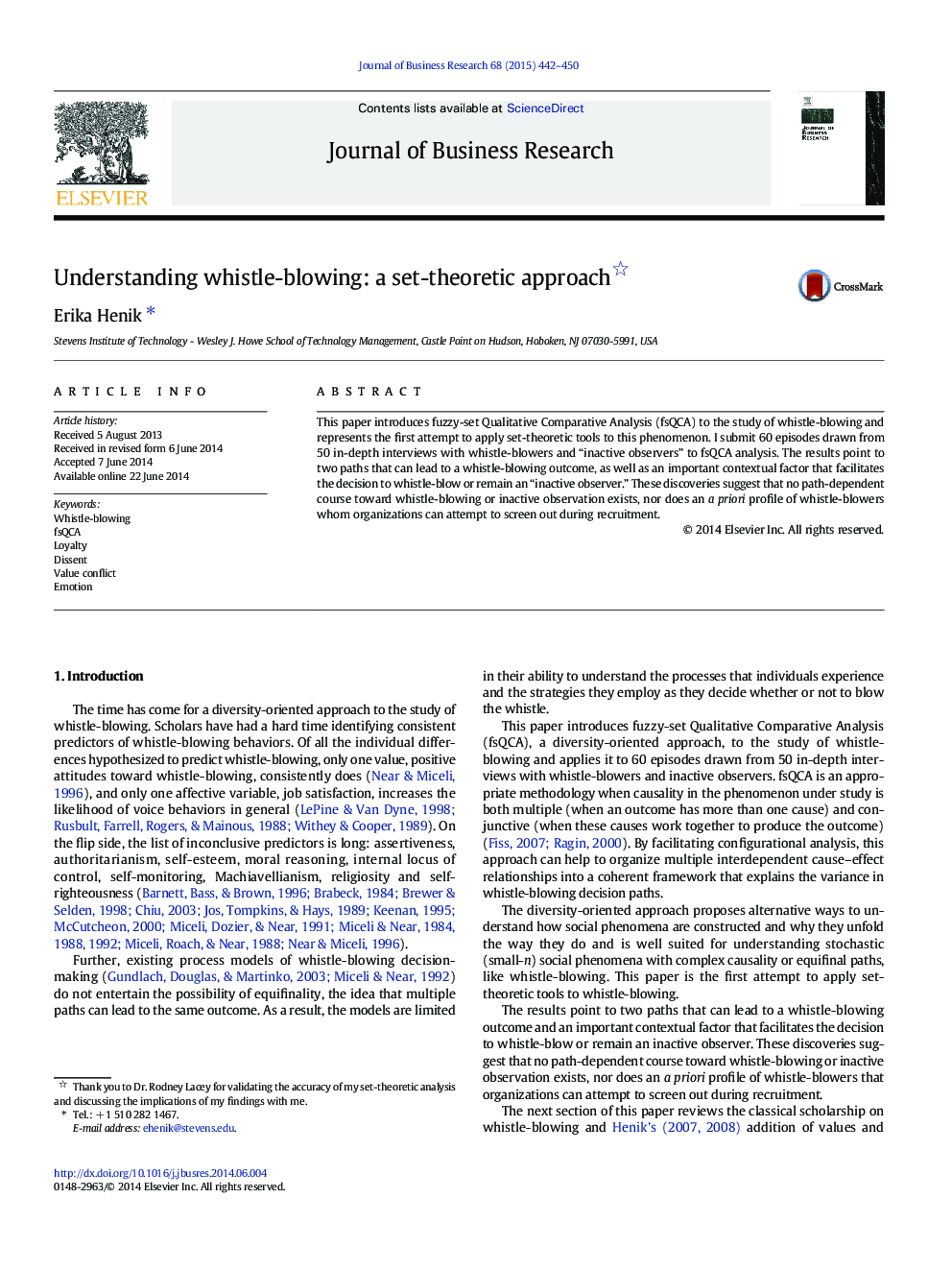| Article ID | Journal | Published Year | Pages | File Type |
|---|---|---|---|---|
| 1017248 | Journal of Business Research | 2015 | 9 Pages |
Abstract
This paper introduces fuzzy-set Qualitative Comparative Analysis (fsQCA) to the study of whistle-blowing and represents the first attempt to apply set-theoretic tools to this phenomenon. I submit 60 episodes drawn from 50 in-depth interviews with whistle-blowers and “inactive observers” to fsQCA analysis. The results point to two paths that can lead to a whistle-blowing outcome, as well as an important contextual factor that facilitates the decision to whistle-blow or remain an “inactive observer.” These discoveries suggest that no path-dependent course toward whistle-blowing or inactive observation exists, nor does an a priori profile of whistle-blowers whom organizations can attempt to screen out during recruitment.
Related Topics
Social Sciences and Humanities
Business, Management and Accounting
Business and International Management
Authors
Erika Henik,
